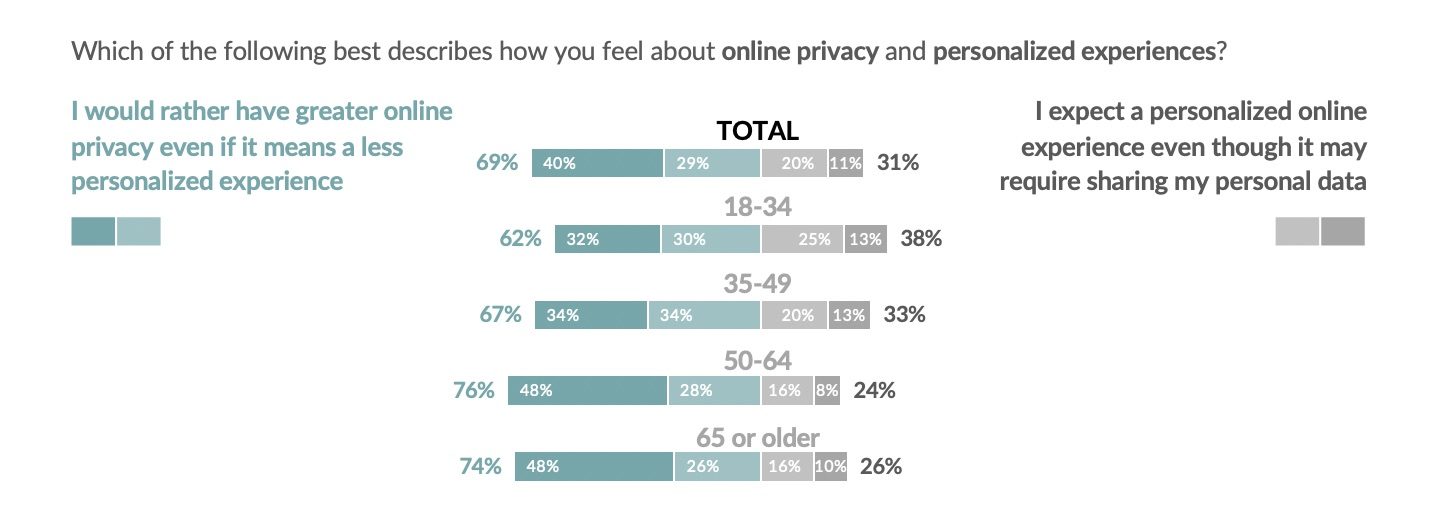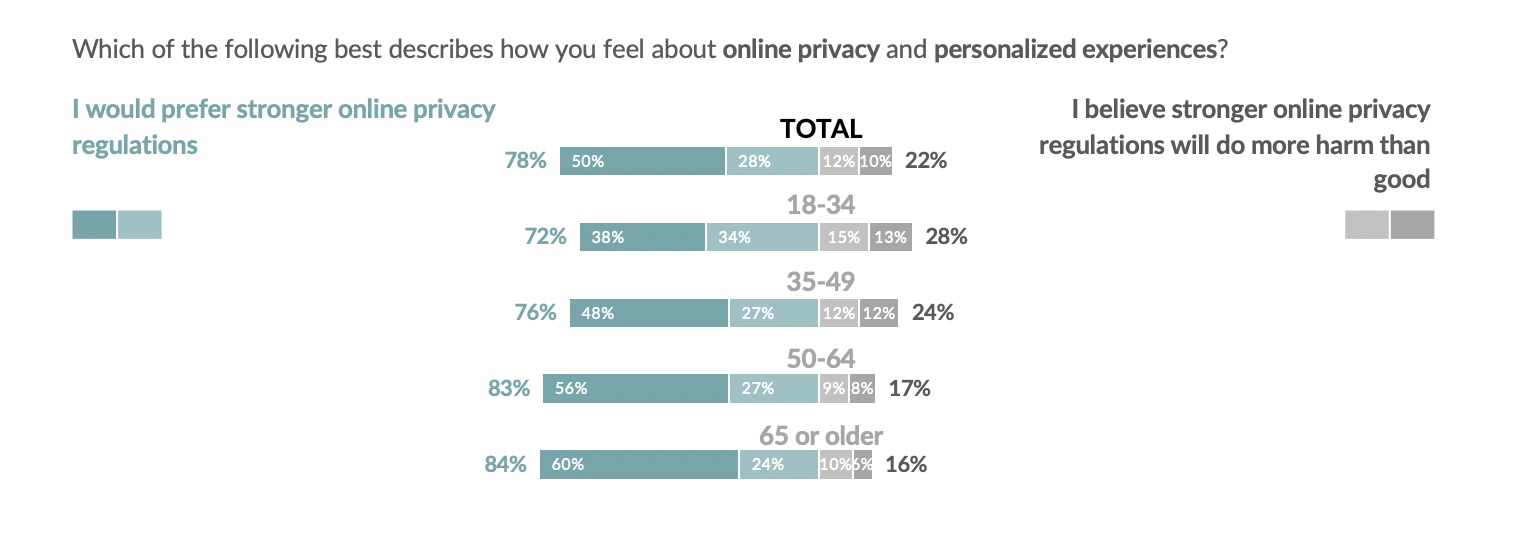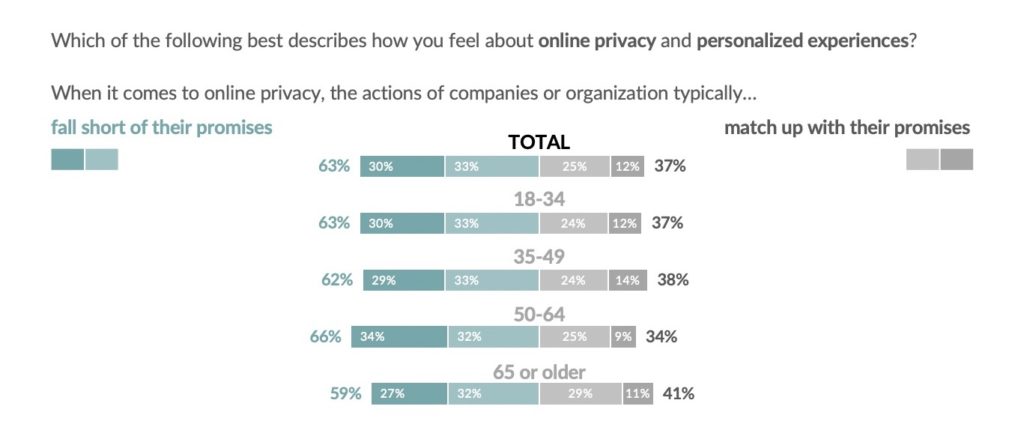This short post is going to talk about an interesting statistical distribution, the Gumbel distribution, and how to use TensorFlow and SciPy to fit that distribution on historical weather data provided…
The rules of online engagement are changing — fast.
A year after declaring its plans to halt support for third-party cookies in its Chrome browser, Google recently announced that beginning sometime in 2022, its digital ad tools will no longer support tracking of individual users’ online activities. Google will implement a “privacy sandbox” to target ads without collecting information about users from multiple websites — a move that drew applause from data privacy advocates, and caused consternation among advertisers who’ve grown dependent on cookies to deliver more personalized, contextually relevant ads.
Privacy and personalization are fundamentally paradoxical, of course. Personalization relies on data collection and analysis, and privacy relies on restricting those very same things.
Here’s the rub: consumers say they want privacy and personalization. But which matters more to them?
We asked them to pick a side… and frankly, it wasn’t even that close.
According to Civis Analytics’ latest models, based on thousands of survey respondents, 63 percent of Americans prioritize online privacy over personalization of digital ads. Moreover, 69 percent are willing to accept a less personalized, less contextually relevant online experience provided it guarantees them greater data privacy.
Privacy wins out across all age groups. As depicted in the chart below, 62 percent of respondents between the ages of 18 and 34 would rather have greater online privacy even if it results in a less personalized experience, a number that increases to 67 percent among the 35 to 49 set; to 76 percent among those 50 to 64; and to 74 percent among those 65 and older.

In fact, as the next chart demonstrates, 78 percent of all respondents would prefer stronger online privacy regulations, as opposed to the 22 percent who believe stronger online privacy regulations will do more harm than good.

These findings may come as a surprise to marketers who’ve previously emphasized the benefits of personalization to target customers based on their established likes, needs, interests, and other preferences. “Marketers talk a lot about how consumers love personalization, and that consumers want relevant ads,” says Vanessa Sheng, director of survey research at Civis. “That’s true, but in the context of an already hyper-personalized world, and with increasing concerns about online privacy, now we should think more about a balanced approach.”
Marketers also should think more about the perceived disconnect between how they talk about data privacy and how they actually address it. As the chart below illustrates, 63 percent of respondents said that when it comes to online privacy, the actions of companies or organizations typically fall short of their promises.

However, there’s also a disconnect between how consumers feel about online privacy and the steps they take to ensure it: 42 percent of respondents admitted they frequently give websites permission to set cookies without reviewing their cookie policies in detail. Even so, 59 percent of respondents expressed at least some familiarity with the news about Google removing third-party cookies on its ad networks and Chrome browser. Ninety-three percent of those respondents expect Google’s decision will have some measure of impact on their online privacy over the next 12 months, and 90 percent believe it will impact their online experiences in the year ahead.
“’Online privacy’ is a term that many people equate with individual anonymity, and these shifts in the industry are building an internet where that is increasingly possible,” says Hamza Jaleel, research manager at Civis. “But a broader understanding of privacy which prioritizes the interests of online citizens is one that encompasses anonymity, secrecy, and autonomy. This means choosing who collects your data, knowing who has access to it, and consenting to how it’s used. Telling compelling, authentic stories this way isn’t simply less intrusive — it’s more effective.”
Organizations who learn how to tell these types of stories and communicate this newfound effectiveness — who loudly and clearly trumpet the steps their brand is taking to ensure the privacy-first digital experience that customers demand — are poised to reap huge dividends.
The path to privacy begins by unifying first-party data: personal information customers have willingly shared with brands via sources like mobile applications and loyalty programs. While third-party cookies enabled organizations to track individuals from site to site and retarget ads across media properties, first-party data supports much more sophisticated, relevant, and permission-based engagement. Brands not only can use first-party data to deliver more seamless experiences for returning consumers, but they also can leverage first-party insights like purchase history to continue personalizing these experiences (for example, promoting special discounts on dog toys and accessories to someone who just ordered a bag of dog food).
These direct, substantive relationships aren’t built overnight. Organizations must assemble data collection programs, assess whether or not they’re authentic, and begin conversations that may not pay off for years. It’s a far cry from digital advertising, where you could observe results within hours.
But unifying first-party data streams is worth the effort. When you can tell even more powerful stories and develop even more intimate one-to-one relationships — and, no less important, when you can do it all in the ethical, respectful manner that privacy-minded consumers demand — the payoff is massive. Email hello@civisanalytics.com to begin a one-to-one conversation on making it all happen.


